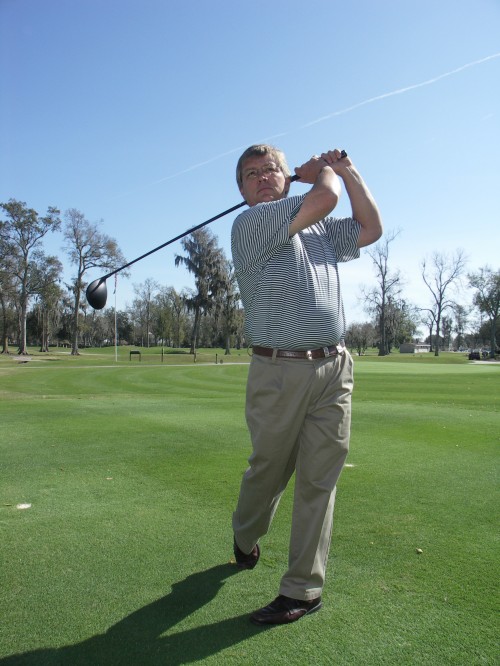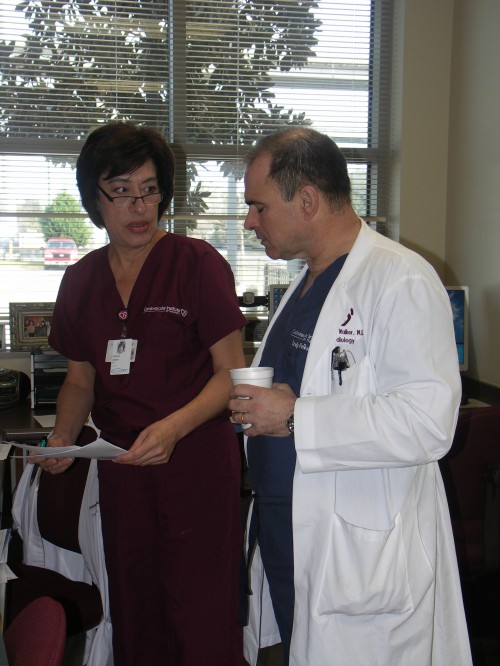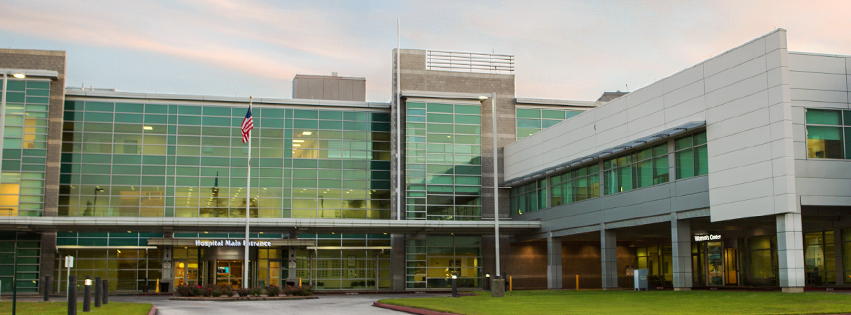Multitude of exemptions gut state funds
February 22, 2012
Ellendale Country Club contributes to community
February 22, 2012Keith Stanley is a crane operator and avid motorcyclist. He knows that keeping his bike or gantry running properly requires regular maintenance and occasional diagnostic activity to head off possible problems down the road.
The Houma resident did not realize that the same discipline he exercised to take care of machinery also applied to his personal health – until, at the age of 45, following an exam and blood work that revealed his elevated blood pressure and high cholesterol, he started having regular physical discomfort.
“It was pretty bad,” Stanley said of the chest pain he experienced. “I knew my dad had [cardiovascular disease], but without any other signs I never really thought about it.”
The crane operator was prescribed medication, but pain persisted to the degree that his primary care physician referred him to Dr. Craig Walker, founder of the Cardiovascular Institute of the South.
“I had heard of Dr. Walker and it was his reputation that got me to him,” the new heart patient revealed.
Undergoing testing with a treadmill electrocardiogram, a calcium score, echocardiogram and carotid ultrasound all on the same day set Stanley up for more testing. The following day the new patient was given an angiogram that revealed he had 99 percent blockage in two heart arteries.
With the placement of stints in the blocked arteries, vessels were opened and blood was flowing as intended to Stanley’s heart. “I didn’t feel any pain after the procedure and certainly not any more chest pain,” he said.
As a young man with a relatively healthy lifestyle, this CIS patient revealed that he had no idea he was at risk for cardiovascular problems and he thought, like most people, that heart attacks were things older people got. He also learned through CIS-provided education that an increasing number of people under the age of 60 have cardiovascular trouble.
Research shows that cardiovascular disease impacts 40 percent of both men and women between the ages of 40 and 59, and both sexes are evenly divided in accounting for cardiovascular deaths.
Stanley said he was willing to tell his story so others might learn from his experience and to help promote CIS as it ranked in the top 1 percent of all regional medical facilities, including those in Louisiana, Arkansas, Oklahoma and Texas, for patient satisfaction, as well as to acknowledge February as American Heart Month.
According to a survey conducted by Press Ganey and Associates, CIS secured a mean score of 93 during 2011, placing it in the 99th percentile range. The Houma-based facility also ranked in the 96th percentile for patient satisfaction when compared to all medical facilities in the nation.
“CIS is extremely proud of what our team has accomplished,” CIS CEO Dr. David Konur said. “We continue to set high goals for patient satisfaction in the fulfillment of our mission to provide our patients with the highest quality cardiovascular services available.”
“Patient satisfaction scores are based upon survey responses that are sent to patients at random by Press Ganey,” CIS Marketing Director Anne Kolwe said. “Press Ganey works with more than 10,000 health care organizations, including nearly 40 percent of U.S. hospitals.”
Kolwe confirmed that a significant component in which CIS patients grade the facility high, in addition to positive results, is related to the public education and information opportunities provided by the institute’s medical professionals. Twice a year, the facility hosts a free abdominal aortic aneurysm ultrasound screening. “We just had one in January and will have another later in the year,” she said.
Walker confirmed that more people are learning the facts about heart disease and gradually coming around to making healthier lifestyle choices.
The institute founder, known for being able to avoid bypass surgery with the development and use of various stints, noted that technological treatment advances have made cardiovascular procedures less frightening and invasive than in the past. “Opt for transradial catherizations if available,” he said. “It provides easier access, especially in obese patients or patients with peripheral vascular disease. There is virtually no bleeding complications, no concern about blood thinner medications and greater mobility [with] no need to lie flat for four to six hours with pressure applied to the groin.”
Walker said approximately 80 percent of heart attacks and strokes are inherited disorders, and that about 50 percent of men and 64 percent of women who die suddenly of an attack never knew they had cardiovascular disease.
Stanley is among those who have paid increased attention to the symptoms of a heart attack. They include uncomfortable pressure in the chest or feeling of fullness. Women often experience back pain in addition to other symptoms. The heart attack victim might also have pain in the left arm, neck or jaw. Other signs are shortness of breath, breaking out in a cold sweat, nausea and lightheadedness.
Stroke symptoms include a sudden numbness, weakness or tingling in the face and loss of movement in the arms or legs, particularly on one side of the body. Victims might also experience sudden changes in vision, difficulty speaking, loss of balance and a severe headache.
Walker said that diet and exercise are essential to heading off cardiovascular disease. Stanley said for him, learning the risks and facts about heart disease have made a difference.
“The key to effectively preventing heart disease is education,” Walker said. “Anyone with risk factors [including family history, being overweight or partaking in unhealthy practices like smoking] should consider the possibility of having heart disease regardless of the presence of symptoms.”
Stanley said he intends to visit the CIS for regular checkups. “I most definitely recommend that others get checked,” he said. “They have nothing to lose and everything to gain.”
The 500-member team at CIS has expanded to represent nearly every specialty in heart and circulatory medicine since being established more than 28 years ago. It is both nationally and internationally recognized with 13 clinics beyond the Houma headquarters. Walker attributed the institute’s success to providing the most up-to-date technology coupled with compassionate care.
Dr. Craig Walker receives patient information from nurse Diane
Hebert at the Cardiovascular Institute of the South. The
Houma-based center is observing February as American Heart Month,
but offers educational programs and health screenings throughout
the year.












